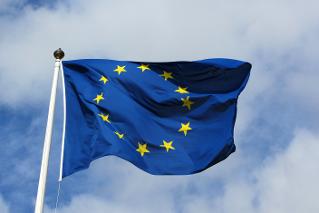So what is Europe for anyway?
South Wales Evening Post - 4 March 2014
You seldom get a political issue more divisive than the subject of Europe. Quite often though the arguments tend to resemble discussions about the possibility of life on Mars.
What I mean is that there’s lots of opinion to be had but everyone seems a bit short on actual background knowledge.
Ask people to name the number of member states or how many British MEPs Britain sends to Strasbourg and you would most probably draw a blank. Few could even tell you how we came to join in the first place.
If you’re under the age of 35 then you will not have known a time when the UK wasn’t part of the European Community in its various forms.
Even so, when the election comes around in May, most of us who can be bothered to vote will either see it as a mini-referendum over continued membership or a means of registering an opinion on domestic matters.
We just don’t seem to have grasped Europe, either as a concept or a political reality.
There is no question that what makes EU a turn-off for most of us is its sheer complexity. It’s far easier to break the thing down into bite-sized pieces about ‘sovereignty’, ‘human rights’ or ‘the Euro-zone’.
I’d argue that a more informed way of looking at things is to understand that the creation of what we now call the European Union was a social and economic measure designed to avoid another continental war.
It began in the 1950’s with a pooling of French & German coal and steel production. A decade later, the Treaty of Rome created the European Economic Community whereby member states could enjoy a ‘common market’ of goods, workforce, services and capital.
Political opinion at home about joining was as divided as it is now. The difference then was that it was the right who saw economic opportunities to reduce tariffs and increase competitiveness. Left-wingers distrusted the move for much the same reason, wary of what they feared was an international conspiracy of capital.

35 years on and we still don't get Europe
Opinions have since switched around; mostly due to the advent of a social dimension to match the economic agenda plus common transport and agriculture policies.
Even so, it is not the changes to the European governance model that have been a concern for the doubters but the way that they have happened.
I can understand how a succession of treaties, signed without the benefit of popular consent, have made people question if the deals done at Maastricht and Lisbon are in keeping with the original lofty principles.
Another downside is the increasing role of European Commission, an autonomous executive that drives legislation and regulation.
I guess it is no surprise that Euro-scepticism is just as prevalent in Germany and France as it is here and for much the same reasons. A good number equate Europe more with bureaucracy rather than opportunity.
The big difference there is that radical reform rather than outright withdrawal tends to be the popular call.
Of course, most of the political parties here at home also talk about getting ‘a better deal out of Europe’. This has previously meant seeking reduced payments and greater benefits. More recently it signifies an intent to clamp down on economic migration from new member states.
The most significant thing however is that Europe has created a different kind of politics. The popularity of a party seeking election so that it can dismantle an institution from within may defy logic but it is a factor than cannot be ignored.
There is no doubting that Europe is hard work in every sense of the phrase. That said, I’d recommend you take a visit to the European Union website (www.europa.eu) and browse for a while.
If you get nothing more than a better understanding of what we’re signed up to and why then it will be worth it.
But that’s just my opinion.